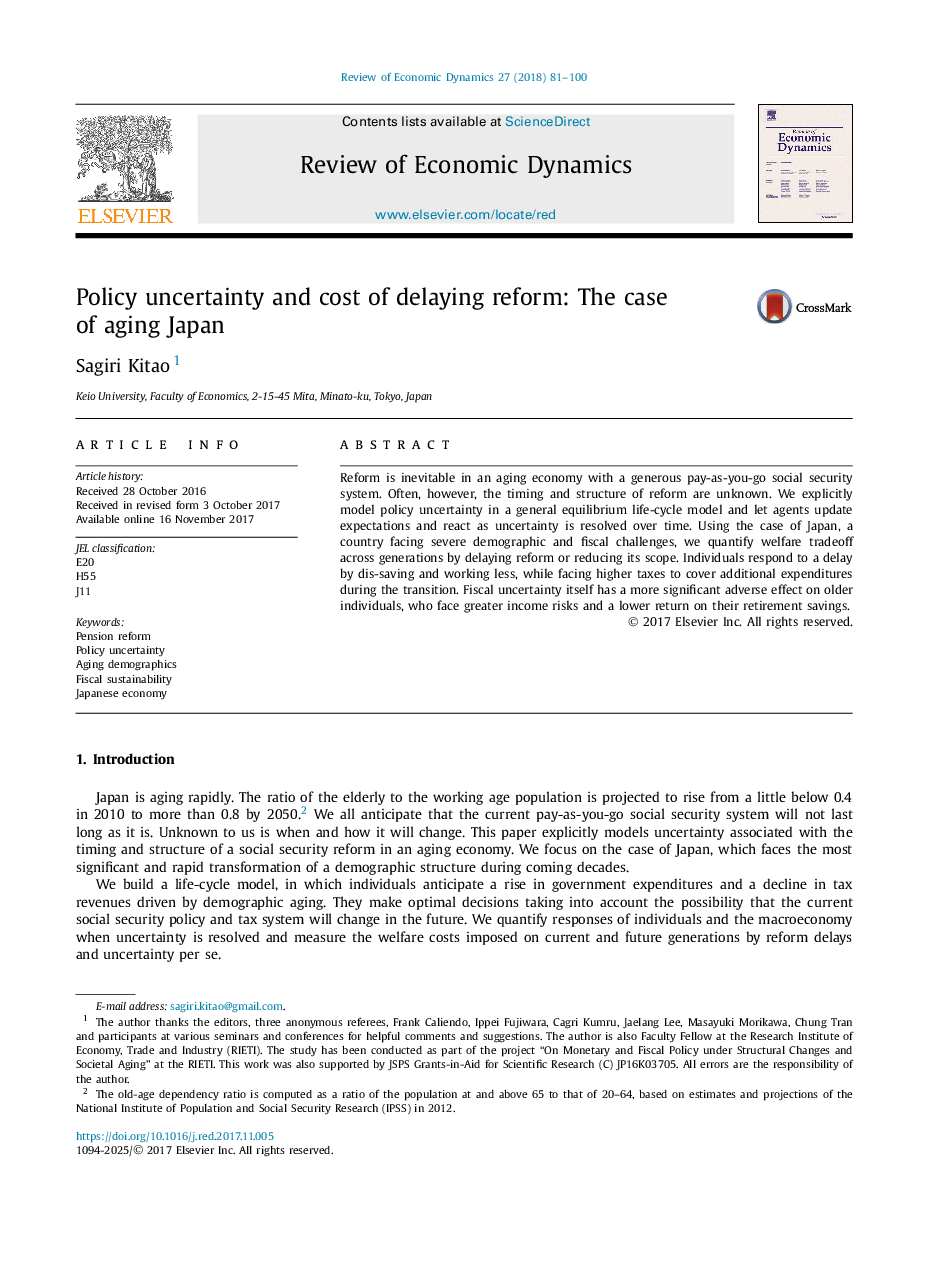| Article ID | Journal | Published Year | Pages | File Type |
|---|---|---|---|---|
| 7388205 | Review of Economic Dynamics | 2018 | 20 Pages |
Abstract
Reform is inevitable in an aging economy with a generous pay-as-you-go social security system. Often, however, the timing and structure of reform are unknown. We explicitly model policy uncertainty in a general equilibrium life-cycle model and let agents update expectations and react as uncertainty is resolved over time. Using the case of Japan, a country facing severe demographic and fiscal challenges, we quantify welfare tradeoff across generations by delaying reform or reducing its scope. Individuals respond to a delay by dis-saving and working less, while facing higher taxes to cover additional expenditures during the transition. Fiscal uncertainty itself has a more significant adverse effect on older individuals, who face greater income risks and a lower return on their retirement savings.
Related Topics
Social Sciences and Humanities
Economics, Econometrics and Finance
Economics and Econometrics
Authors
Sagiri Kitao,
